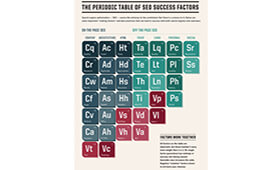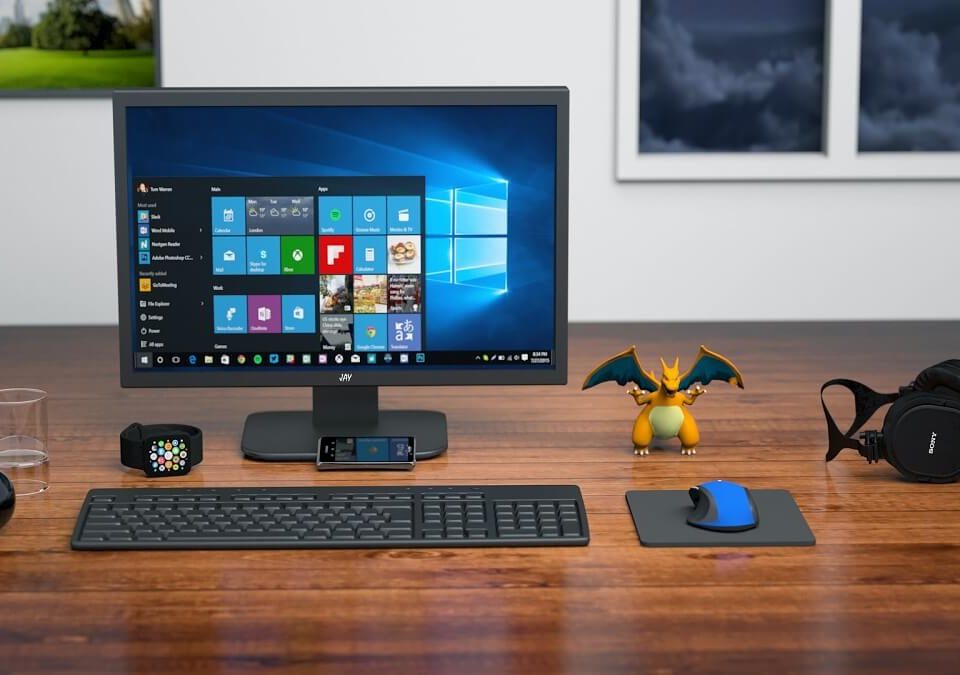
The periodic table of SEO success factors part 13, Social Media
December 2, 2015
The periodic table of SEO success factors part 15 violations and penalties
December 7, 2015
So far, I’ve discussed the positive signals that make up the Periodic Table of SEO success factors. But there are also some negative factors to avoid.
That said, let’s talk about things not to do!
Vt: “Thin” or “Shallow” Content
To respond to lots of complaints about poor search results Google rolled out an update called “Panda” in 2011. Panda targets what is described as “thin” or “shallow” content or content that is lacking in substance.
This penalty targets sites with a predominant amount of so-so content and essentially treats it similar to spam techniques.
Nowadays it’s no longer a question whether the content is only relevant but whether it is valuable for the readers.
Vc: Cloaking
Let’s talk complicated hiding. How about developing your site so that search engines are shown a completely different version than what humans see?
That’s called cloaking. Search engines really don’t like it. It’s one of the worst things you could do.
While most people are unlikely to accidentally spam a search engine, the opposite is true when it comes to cloaking. That’s why it’s such a heavy penalty, if you’re caught doing it. It’s a bait and switch and seen as a deliberate attempt to manipulate search results.
Vs: Keyword Stuffing
It’s one of the oldest tactics on the books, yet is still being used, and the search engines still don’t like it. Search engines say to use words you want to be found for on your pages. OK, I’ll give them those words over and over again! But if you do it too much you will be penalized for it.
There’s no correct answer here about how often is too often, but you’d really have to go to extremes to cause this penalty to kick in. the bottom line is that you design your site both for humans and search engines.
Vh: Hidden Text
Once you decide to keyword stuff, your next thought will probably be “Why don’t I hide all this text that no human wants to see.” You might make the text white, so it blends with a page’s background. In doing so, you will have spammed a search engine.
Search engines don’t like anything hidden. They want to see everything that a user sees. Never hide any text whether it be using styles, fonts, or any other means that means a typical user can’t see it.
Vd: Piracy / DMCA Takedowns
The “Pirate” update targeted sites infringing on copyright law. Under pressure from the Recording Industry Association of America (RIAA), Hollywood powerhouses and governments, Google began to penalize sites who received a large number of Digital Millennium Copyright Act (DMCA) “takedown” requests.
It’s unlikely that most sites will have to deal with these issues, but you should handle any DMCA takedown notifications that show up in your Google Search Console account.
Learn more about the Pirate update and piracy in the following categories:
- Google: Pirate Update
- Legal: Copyright
Va: Ads / Top Heavy Layout
Have you ever been on a site and found it hard to find the actual content amid a slew of ads? Where’s the beef!
That’s what the Page Layout algorithm was meant to address. Often referred to as Top Heavy, this penalty is reserved for sites that frustrate the user experience by placing an overabundance of ads before content. So don’t make your users search for the content.
Learn more about the Page Layout algorithm from the following category:
- Google: Top Heavy Update
Vp: Paid Links
Speaking of Google banning itself, it also banned Google Japan, when that division was found to be buying links. For 11 months.
That’s longer than JC Penney was penalized (3 months) in 2011. But JC Penney suffered another penalty after having its paid link purchase splashed across a giant New York Times article. So did several large online florists. And Overstock got hammered via a Wall Street Journal article.
The debate over whether Google should act so aggressively against those who buy and sell links has gone on for years. The bottom line is to rank on Google, you have to follow Google’s rules — and the rules say no buying or selling links in a way that passes on search engine ranking credit.
If you choose to ignore Google’s rules, be prepared for little mercy if caught. And don’t believe programs that tell you they’re paid links are undetectable. They’re not, especially when so many of the cold-call ones are run by idiots.
As for Bing, officially, it doesn’t penalize for paid links, but it frowns on the practice.
The following category has posts with more information about paid links:
- Link Building: Paid Links
Vl: Link Spam
Tempted to run around and drop links on forums and blogs, all with highly optimized anchor text (like ‘louis vuitton handbags 2013′), with the help of automated software?
You suck.
You’re also not doing SEO, though sadly, all the people who hate the spam you leave behind get the impression that’s what SEO is about. So SEOs hate you too – with a passion.
If you do go ahead with it, most of the links won’t give you the credit you were thinking they would. On top of that, you can find yourself on the sharp end of a penalty.
This penalty has been given more weight in this version of the table based on the efforts Google has made in neutralizing and penalizing link spam and, in particular, the launch of the “Penguin” update.
If you’ve been caught dabbling on the dark side, or if a fly-by-night “SEO” company got your site in hot water you can disavow those links on both Google and Bing in hopes of redemption and a clean start.



